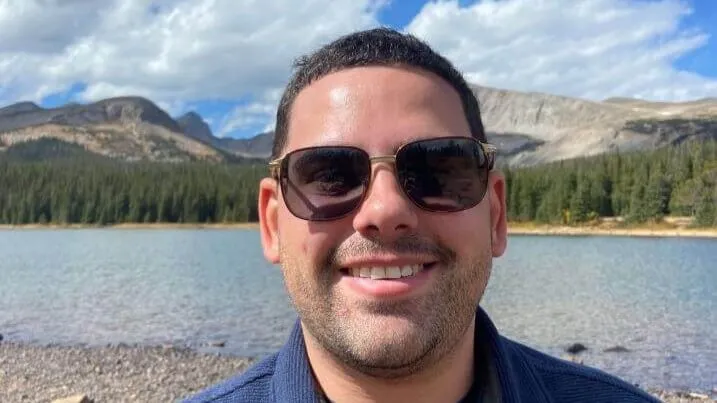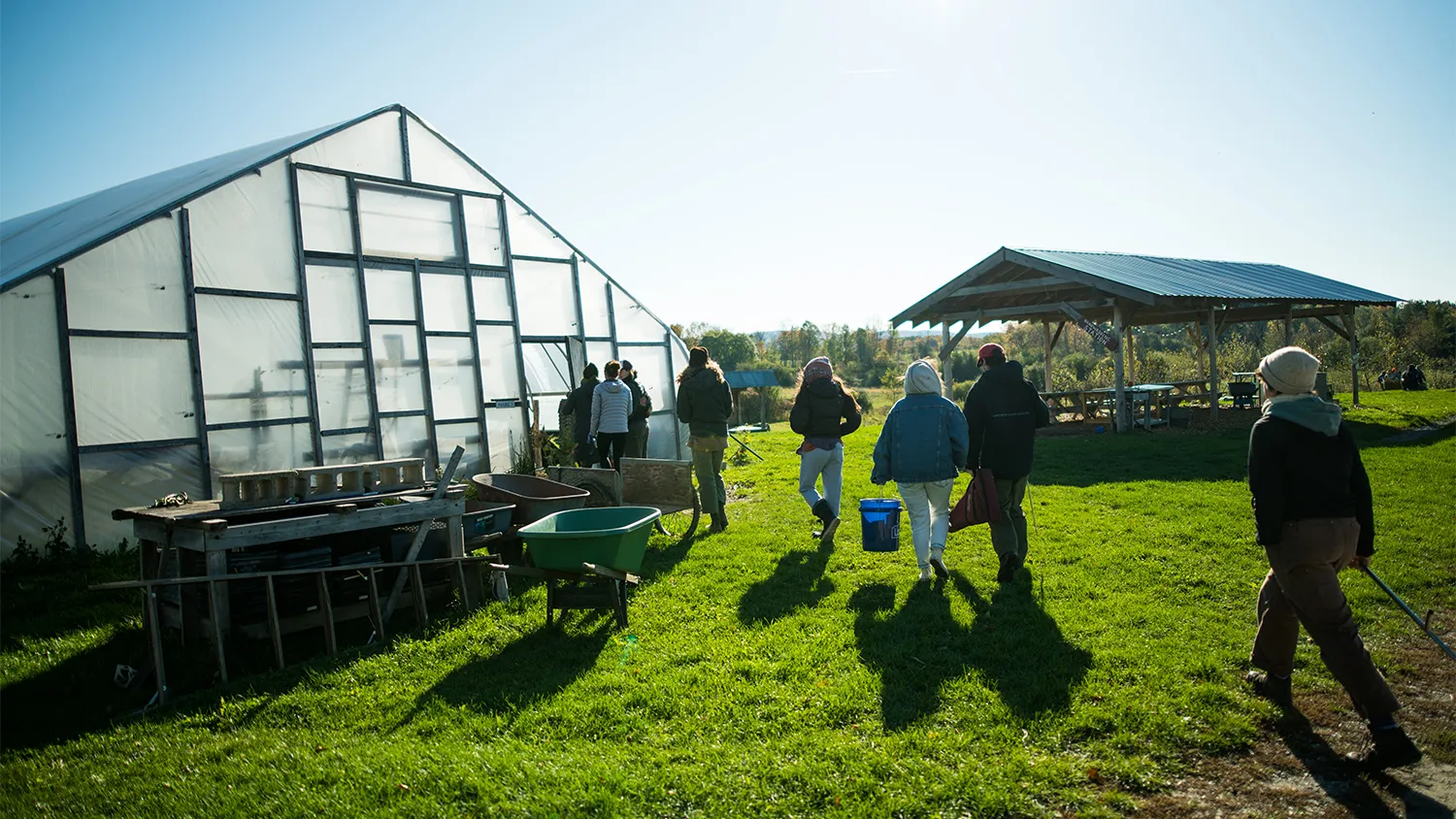Introduce the Policy and Partnerships program, and how it fits into the Gund Institute as a whole:
The Gund is a research accelerator that invests in research and connects it with decision makers in industry, government, and society as a whole. The Policy and Partnerships team sits at that connection point. We help fellows communicate their research by developing outreach materials and identifying key stakeholders to engage. We also help support research by facilitating the development of partnerships that fund research and put it directly in the hands of influential organizations.
How did you specifically find the Gund Institute?
I did my master's at the University of Colorado Boulder in the Master's of the Environment (MENV) program, and I graduated in May of 2024. This position with the Gund was listed in our MENV newsletter in roughly September 2024, and that's when I applied. That's how I found out about the Gund.
What previous experience would you say best prepared you for this role?
I’d probably say the capstone project I did for my master's, which was a program evaluation of Colorado’s Regional Partnerships Initiative. It's a grant funding program where the state supports local conservation organizations to cultivate a statewide push towards Colorado's collective goals, which includes considerations for tourism to wildlife, and outdoor recreation to cultural resources, while still giving space for local and regional needs.
That experience prepared me really well for this job in a lot of ways. The primary way was that it was a program evaluation and one of the first major projects I worked on here at the Gund was a program evaluation of a Vermont-based program. Very different program, but that program evaluation experience was super handy in helping map out how we were going to conduct the evaluation and what grounds we were going to evaluate the program on. [This experience] was really helpful for that!
On top of that program evaluation experience, I learned a lot by being at the front lines of bridging the gap between higher education and decision makers in the state of Colorado. That looked like doing interviews with people in the local, state, and federal government who were relevant to the conservation missions of the local organizations funded by the Regional Partnerships Initiative. Hearing directly from these stakeholders about how our recommendations and resources would be most helpful in influencing decision-making taught me a lot about how to work most effectively in the policy space from the perspective of higher education.
It was like marketing in a way, because we were putting it on their radar that there's going to be these resources and recommendations coming out. Then by building rapport with the person we were interviewing, it really made them more likely to look at and utilize our project’s deliverables. We were able to tailor what our deliverables looked like based on these interactions to ensure they were useful, which is such an important part of creating that product, of making sure somebody can actually use it.
Tell me about some of your most impactful work:
Evaluating the Vermont Pay for Performance Program has been the most meaningful project I've contributed to here at the Gund so far. The evaluation was already ongoing when I started in February 2025, and we completed it at the end of July. The Vermont Pay for Performance Program is a performance-based payment for ecosystem services program aimed at farmers to incentivize the reduction of phosphorus runoff.
It's a really innovative pilot program. There's only a few other states that are doing anything even like this, so conducting a program evaluation on it was really interesting. There's not a lot to compare it to in the national or global landscape. We had some really, really top-notch folks working on it, some great researchers who were able to look into the process of economic valuation of resources, the efficacy of the program, and attribution of the program to its outcomes. I think that our evaluation will inform a much more successful second iteration of the program that will hopefully serve as a blueprint for more performance-based payment for ecosystem services programs.
How can you see the Policy and Partnerships program growing in the future? What are your hopes and goals for this program as well?
I came into this role at a very interesting time politically. There's a lot of concern with research funding being cut off from the federal government. I think the growth of our team here, or the growth of policy and partnership work at the Gund more generally, is going to focus around addressing, and sort of trying to bridge, the gap that federal funding is leaving in the research community. So maybe more partnerships with the private sector, or partnerships with some sort of income stream component to them. More partnerships with state and local government, as those resources are becoming more important than ever, and looking to what we want the future to look like.
Is there any information you think is important to add?
Right now, I'll say if there's anybody that has research that's coming out in the Gund, if you're a fellow, student, or a postdoc, and you are about to publish something and you're interested in developing more detailed outreach materials, maybe some outreach materials that are specifically targeted at helping grow the reach of your research to decision makers, or potentially create pathways to future research projects based on that same topic, reach out to the Policy and Partnerships team and we can help develop those materials.
*This interview has been lightly edited for clarity.*

